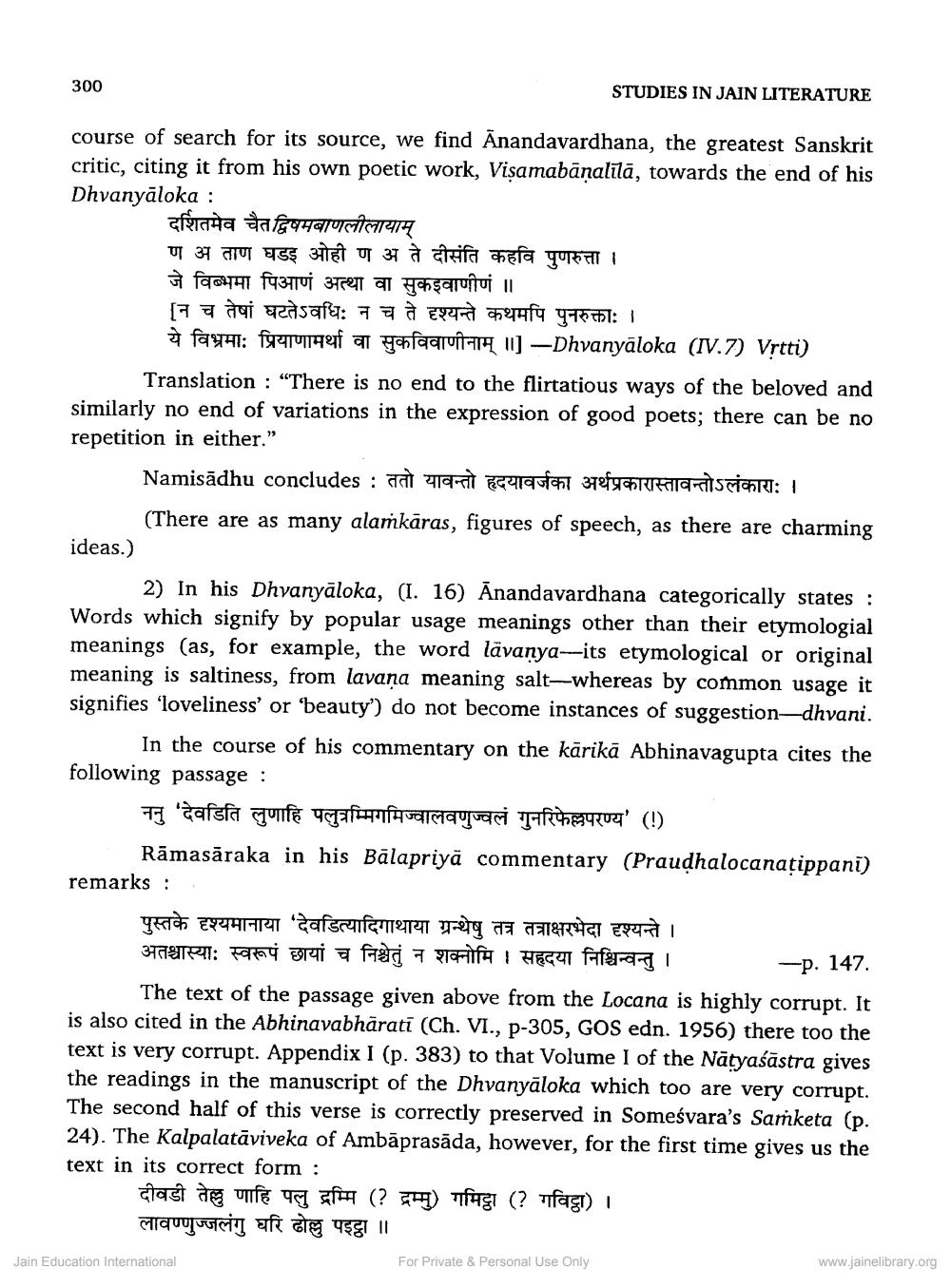________________ 300 STUDIES IN JAIN LITERATURE course of search for its source, we find Anandavardhana, the greatest Sanskrit critic, citing it from his own poetic work, Visamabanalila, towards the end of his Dhvanyaloka : दर्शितमेव चैतद्विषमबाणलीलायाम् ण अ ताण घडइ ओही ण अ ते दीसंति कहवि पुणरुत्ता / जे विब्भमा पिआणं अत्था वा सुकइवाणीणं / / [न च तेषां घटतेऽवधिः न च ते दृश्यन्ते कथमपि पुनरुक्ताः / ये विभ्रमाः प्रियाणामर्था वा सुकविवाणीनाम् // ] -Dhvanyaloka (IV.7) Vrtti) Translation : "There is no end to the flirtatious ways of the beloved and similarly no end of variations in the expression of good poets; there can be no repetition in either." Namisadhu concludes : ततो यावन्तो हृदयावर्जका अर्थप्रकारास्तावन्तोऽलंकाराः / (There are as many alamkaras, figures of speech, as there are charming ideas.) 2) In his Dhvanyaloka, (I. 16) Anandavardhana categorically states : Words which signify by popular usage meanings other than their etymologial meanings (as, for example, the word lavanya---its etymological or original meaning is saltiness, from lavana meaning salt-whereas by common usage it signifies 'loveliness' or 'beauty') do not become instances of suggestion-dhvani. In the course of his commentary on the karika Abhinavagupta cites the following passage : ननु 'देवडिति लुणाहि पलुम्मिगमिज्वालवणुज्वलं गुनरिफेल्लपरण्य' (!) Ramasaraka in his Balapriya commentary (Praudhalocanatippani) remarks : . पुस्तके दृश्यमानाया 'देवडित्यादिगाथाया ग्रन्थेषु तत्र तत्राक्षरभेदा दृश्यन्ते / अतश्चास्याः स्वरूपं छायां च निश्चेतुं न शक्नोमि / सहदया निश्चिन्वन्तु / -p. 147. The text of the passage given above from the Locana is highly corrupt. It is also cited in the Abhinavabharati (Ch. VI., P-305, GOS edn. 1956) there too the text is very corrupt. Appendix I (p. 383) to that Volume I of the Natyasastra gives the readings in the manuscript of the Dhvanyaloka which too are very corrupt. The second half of this verse is correctly preserved in Somesvara's Samketa (p. 24). The Kalpalataviveka of Ambaprasada, however, for the first time gives us the text in its correct form : दीवडी तेल्लु णाहि पलु द्रम्मि (? द्रम्मु) गमिट्ठा (? गविट्ठा) / लावण्णुज्जलंगु घरि ढोल्लु पइट्ठा / / For Private & Personal Use Only www.jainelibrary.org Jain Education International




